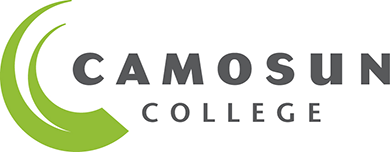Faculty spotlight: Julie Alexander, PhD
Archived Content
This archived web page remains online for reference, research or record-keeping purposes. This page will not be altered or updated and may contain out of date information. If you’re looking for specific information and haven’t found it, please contact communications@camosun.ca.
June 3, 2010
Hmmm…a volleyball scholarship, or a physics scholarship? It’s an envious conundrum, and fortunately for Camosun College, Julie Alexander chose Door # 2. More than two decades later, Dr. Alexander holds a PhD in Climate Modeling and teaches physics full-time at Camosun College.
Since starting with Camosun in 1987, Alexander has taught several physics courses within the university transfer program, taking a lead role in developing the curriculum for many of the second year physics courses. Currently she teaches physics in Camosun’s Engineering Technology and Engineering Bridge programs.
“I really enjoy teaching the Bridge students,” says an enthusiastic Alexander. “They’re very motivated to learn and very focused on what they need to do to get through a very intense program. The technology diploma students are also a pleasure to teach. They’re serious students who show up to every class and treat their schoolwork like a job.”

Julie with 2 gold medals in rowing in Croatia.
Tops in rowing
But just because she chose physics over volleyball, doesn’t mean she gave up sports. Quite the contrary—and six mornings a week you can see her out on Elk Lake practicing her new passion, rowing.
“I first got hooked on rowing in Camosun’s Corporate Challenge back in 1999,” says Alexander. “When I was teenager I tried rowing a single scull but promptly capsized and declared never to do it again. Rowing in a larger boat with my co-workers was much more fun.”
Alexander continues to row competitively at the Masters Rowers level, which involves athletes over the age of 27. She teams up for mixed doubles with her brother and former Olympian, John Alexander. The Alexander siblings won the Master Rowers’ World Championship three times: 2001 in Montreal, 2005 in Edmonton and 2007 in Croatia. Next up, they’re looking forward to the World Rowing Masters Regatta scheduled for September 2-5, 2010 in St. Catharine’s, Ontario.
The art of teaching science for sport
Camosun’s new Centre for Sport and Exercise Education opened a new opportunity for Alexander and she’s now teaching Biomechanics of Sport to students in the Exercise and Wellness program. Alexander’s personal experience with sport and fitness is valuable as she helps the “non-science” students gain a greater appreciation for how physics is related to the body.
“The first thing I have to do is challenge the preconception some students have that they can’t do math,” explains Alexander. “Everyone can do math. It’s like your favourite sport—it takes dedication, discipline and lots of practice.
“You can’t excel in sports without understanding the biomechanics of the body. This requires learning about forces, acceleration, torque and balance—all concepts of physics that affect an athlete’s ability to perform more efficiently and safely. “

Julie at convocation in 2008 when she received her PhD.
From Vic High to PhD, with a few stops in between
Raised in Victoria since the age of four, Alexander graduated from Victoria High School and was active in gymnastics. She completed a Bachelor of Science Honours Degree in Physics at the University of Victoria. Scholarship money kept her at UVic, where she completed her Masters in Theoretical Particle Physics, completing that degree in only 18 months. From there she went to UBC’s TRIUMF research centre to pursue a PhD on the same topic. Just before finishing her doctorate, Alexander left UBC to accept a teaching job at Camosun College. She discovered she loves teaching, so instead of returning to complete the PhD, Alexander stayed on with Camosun and in 1987 became a full-time faculty member with the physics department.
It wasn’t until 2002 that Alexander decided to get back to her own education. UVic’s Andrew Weaver invited Alexander to join the Climate Modeling Group, where she completed her PhD in Climate Modelling in 2008, with a focus on the North Atlantic thermohaline circulation. As a UVic student once again, Alexander decided to try out for the UVic rowing team. “I was in my 40s by that time, and by far the oldest person trying out. I made the team, but in the end, my PhD work took precedence and I simply didn’t have the time to commit to that level of rowing as well. Still, it was very gratifying to find out I had what it takes to make it in the first place.”
“I like to keep busy.”
Alexander continues to take on new challenges, saying she constantly likes to learn new things. She recently developed a short course on the science of climate change for non-scientists and now tries to incorporate the topic into each of her physics courses. Over the summer she’ll be busy developing new course curriculum for the Diploma in Medical Radiography Technology, a new program Camosun is planning to launch in September 2011.
That work will be done in addition to the hours spent on the lake training for September’s rowing competition. The summer will also be filled with gardening and walking her dogs, Kaelie and Anika.
And in September she’ll be back at Camosun doing what she loves, teaching, helping students understand why physics matters to their world.
Last updated: June 4, 2010 11:38 am


